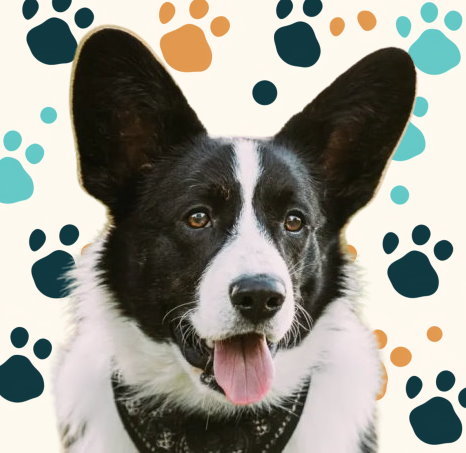Welcome to Dog Training Newbies !
Welcome to Dog Training Newbies !

Corgis, with their adorable appearance and lively personality, have captured the hearts of many dog lovers. However, like many other breeds, Corgis can experience separation anxiety—a condition where a dog becomes distressed when left alone or separated from their owner. Understanding the causes of separation anxiety in Corgis and finding effective solutions is essential for ensuring the well-being of your beloved pet.
UNDERSTANDING SEPARATION ANXIETY IN CORGIS
Separation anxiety in dogs is a behavioral issue that manifests when a dog becomes overly attached to their owner and experiences extreme anxiety when left alone. Corgis are known for their affectionate and loyal nature, which, while endearing, can make them more prone to separation anxiety. When a Corgi forms a deep bond with their owner, being left alone can trigger feelings of fear and abandonment.
This anxiety often results in behaviors such as excessive barking, destructive chewing, digging, pacing, and even attempts to escape the home. These behaviors are not just problematic for the dog owner but are also signs of significant emotional distress in the dog. It’s important to recognize that these actions are not a result of disobedience but rather a response to anxiety.
CAUSES OF SEPARATION ANXIETY IN CORGIS
Several factors can contribute to the development of separation anxiety in Corgis:
Early Life Experiences:
Corgis that were separated from their mothers too early or had traumatic experiences during their early developmental stages are more susceptible to developing separation anxiety. The lack of stability and security in their formative months can lead to an over-dependence on their owners later in life.
Change in Environment:
Corgis are creatures of habit, and any significant change in their environment can trigger anxiety. Moving to a new home, changes in the household dynamic, or the loss of a family member or other pet can all contribute to feelings of insecurity.
Lack of Socialization:
Corgis that are not properly socialized during their early months may struggle with being alone. Proper socialization involves exposing the dog to various people, animals, and environments, which helps them develop confidence and reduces their reliance on their owner for security.
Genetic Predisposition:
Some dogs are genetically predisposed to anxiety. While Corgis are generally confident dogs, individual temperaments can vary, and some may be more prone to anxiety than others.
Over-Attachment:
Corgis thrive on human interaction and can become overly attached to their owners, especially if they spend a lot of time together. This attachment can make it difficult for the dog to cope with being left alone, leading to separation anxiety.


SOLUTIONS FOR MANAGING SEPARATION ANXIETY IN CORGIS
Addressing separation anxiety in Corgis requires a combination of behavioral training, environmental management, and sometimes, professional intervention. Here are some effective strategies for managing and reducing separation anxiety in your Corgi:
Gradual Desensitization:
One of the most effective ways to reduce separation anxiety is through gradual desensitization. This process involves slowly getting your Corgi used to being alone by leaving them for short periods and gradually increasing the time as they become more comfortable. Start by leaving your dog in a different room for a few minutes, and then slowly extend the duration. Reward your dog with treats and praise for remaining calm during these periods.Create a Safe Space:
Providing your Corgi with a designated safe space, such as a crate or a specific room, can help them feel secure when you’re not around. This space should be filled with their favorite toys, a comfortable bed, and items that carry your scent, like an old T-shirt. The goal is to make this area a positive and relaxing environment where your dog feels safe and content.
Establish a Routine:
Corgis thrive on routine, and establishing a consistent daily schedule can help reduce anxiety. Set regular times for feeding, walks, playtime, and rest. This predictability can help your dog feel more secure, as they know what to expect throughout the day.
Exercise and Mental Stimulation:
Ensuring your Corgi gets plenty of physical exercise and mental stimulation can help reduce anxiety. A tired dog is less likely to become anxious when left alone. Engage your Corgi in activities like brisk walks, fetch, and puzzle toys that challenge their minds. Regular exercise helps burn off excess energy and reduces the likelihood of anxiety-driven behaviors.
Practice Calm Departures and Arrivals:
Your Corgi can pick up on your emotions, so it’s essential to stay calm when leaving and returning home. Avoid making a big fuss when you leave or return, as this can heighten your dog’s anxiety. Instead, remain calm and composed, which signals to your dog that your departure and arrival are routine and not something to be concerned about.
Use of Calming Aids:
For Corgis with severe separation anxiety, calming aids such as pheromone diffusers, anxiety wraps, or natural supplements may help. These products can provide a sense of comfort and security, helping to alleviate anxiety. However, it’s always best to consult with a veterinarian before introducing any new products to your dog’s routine.
Professional Help:
If your Corgi’s separation anxiety is severe and not improving with basic training techniques, seeking the help of a professional dog trainer or a veterinary behaviorist is advisable. These professionals can provide tailored advice and training plans to address your dog’s specific needs.
Separation anxiety in Corgis is a challenging issue, but with patience, understanding, and the right strategies, it can be managed effectively. By creating a supportive environment, providing consistent training, and ensuring your Corgi feels secure, you can help them overcome their anxiety and lead a happier, more relaxed life. Remember, addressing separation anxiety is a gradual process, and every small step toward reducing your dog’s stress is a significant achievement.